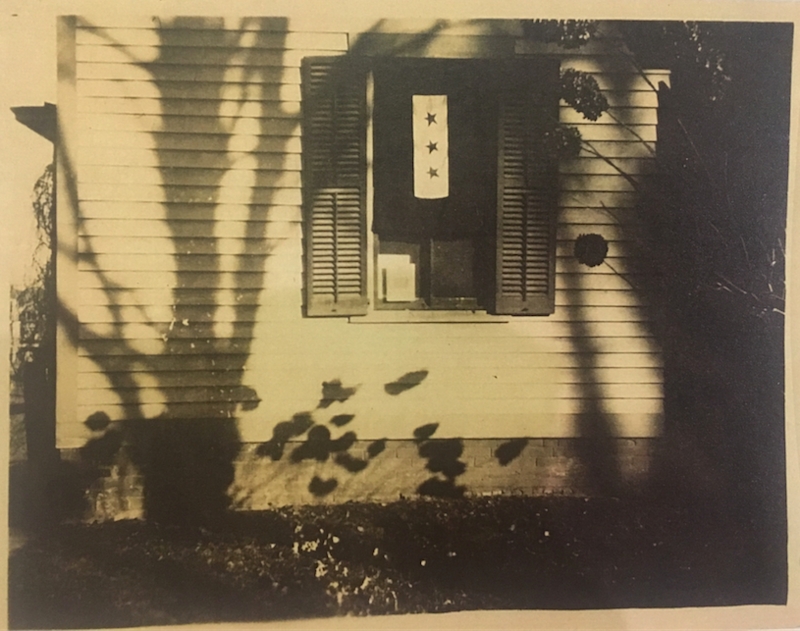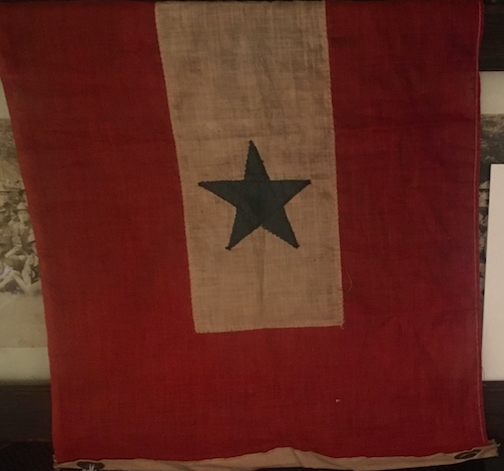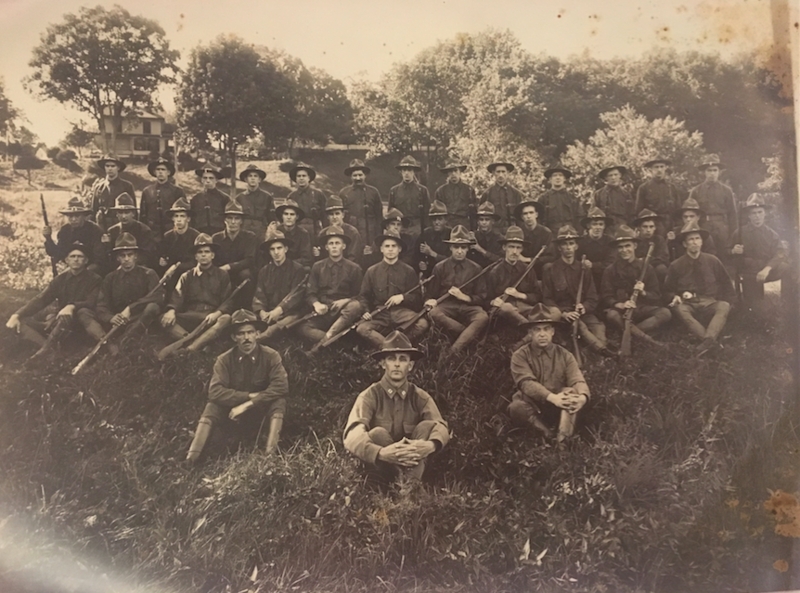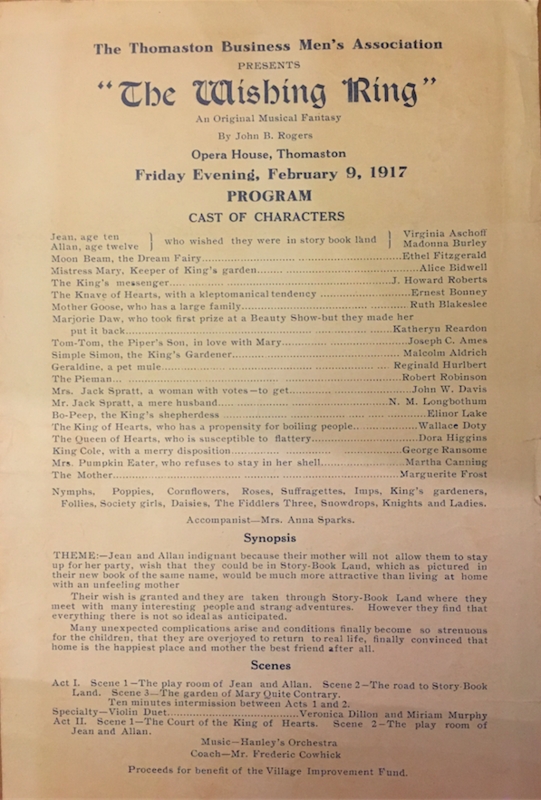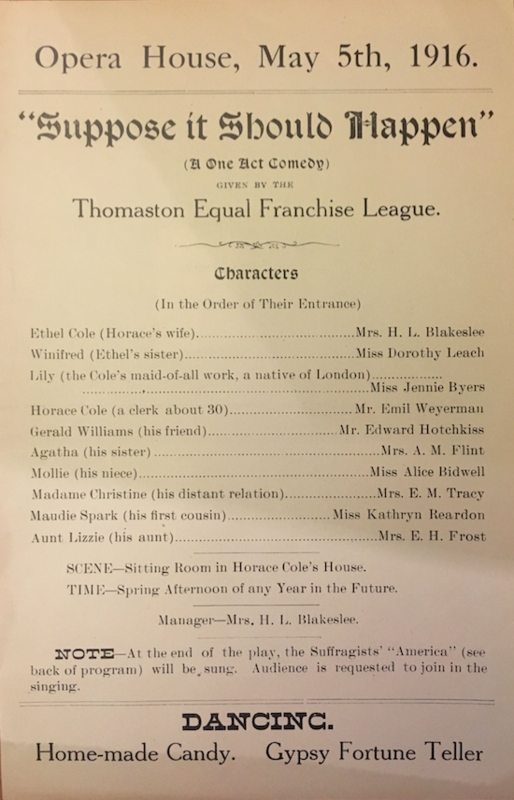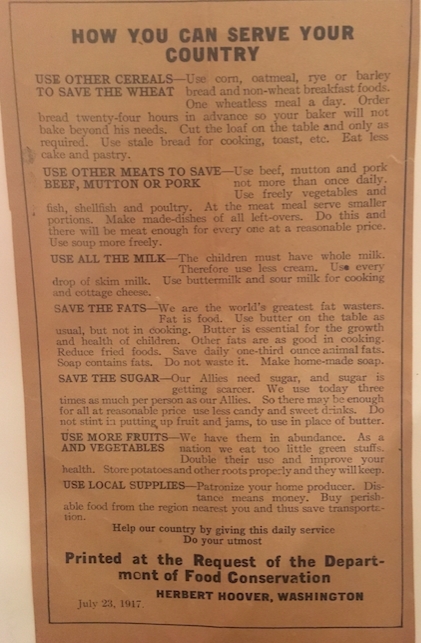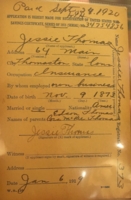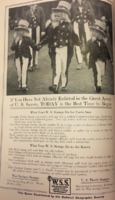Life During Wartime
Aside from their work in industry, Thomaston residents volunteered, enlisted, saved food, bought stamps, pushed for woman suffrage, and simply carried on their daily routines during World War I.
Woman suffrage gained support during the war and ultimately became a reality as a result of it. Several popular arguments emerged in favor of woman suffrage due to the influx of women in wartime industries. The famous labor leader Rose Schneiderman argued that only the vote would improve working conditions. The National Woman's Party, which picketed the White House, challenged President Wilson to support democracy at home while fighting for democracy abroad; several workers from Bridgeport took part in those protests. Wilson finally spoke in favor of suffrage as a war measure and as compensation for their work. When Congress finally approved woman suffrage, it was too late to affect the outcome of the war, but it was in response to women's work.
Thomaston's Equal Franchise League organized prior to America's entry into World War I, at least as early as 1914 according to meeting announcements in the Hartford Courant. Mrs. Edwin Frost was the President. A suffrage movement made sense for Thomaston because women had always worked in this blue collar town. When women continued to work during the war, it was considered a patriotic duty performed to meet "the needs of the time."
Reflecting Thomaston women's contributions to the war effort, a "victory war rally" held at the Opera House on April 8, 1918 featured a speech titled "Women's Part in Victory."
